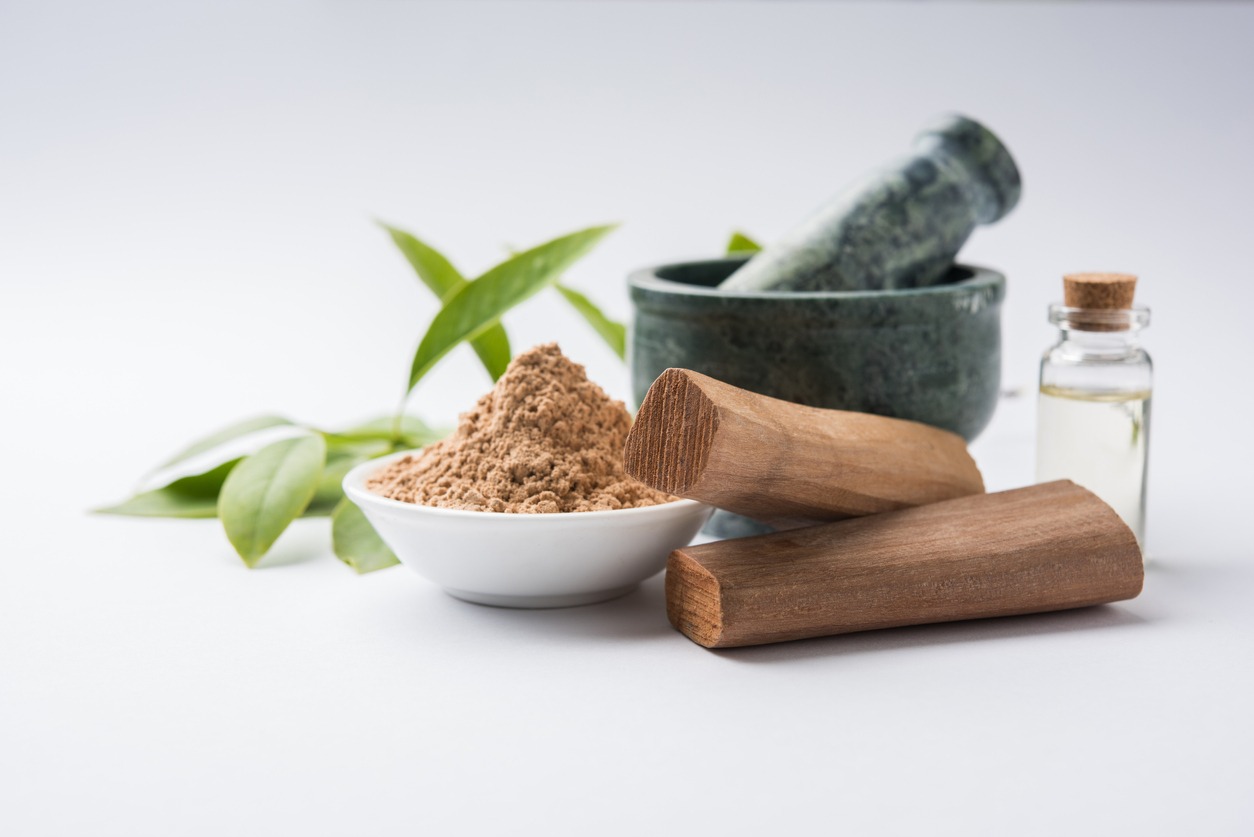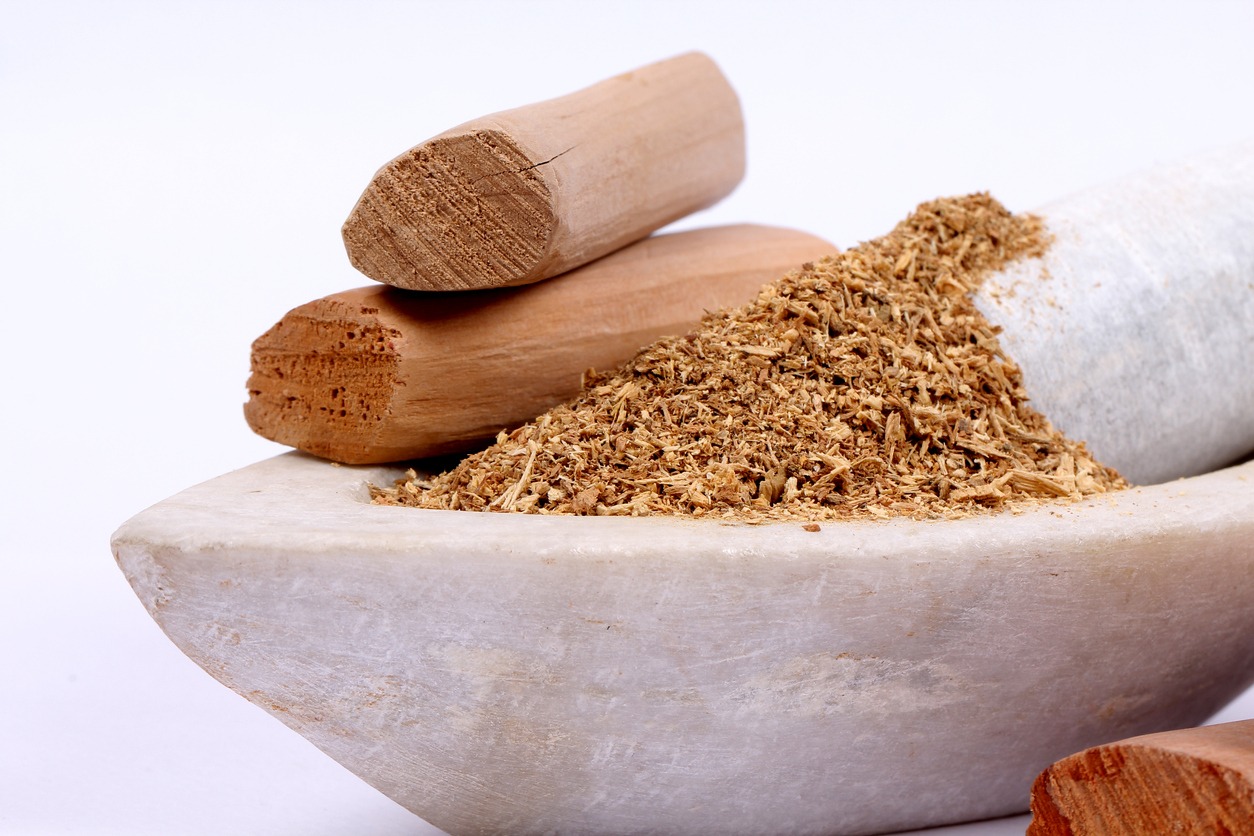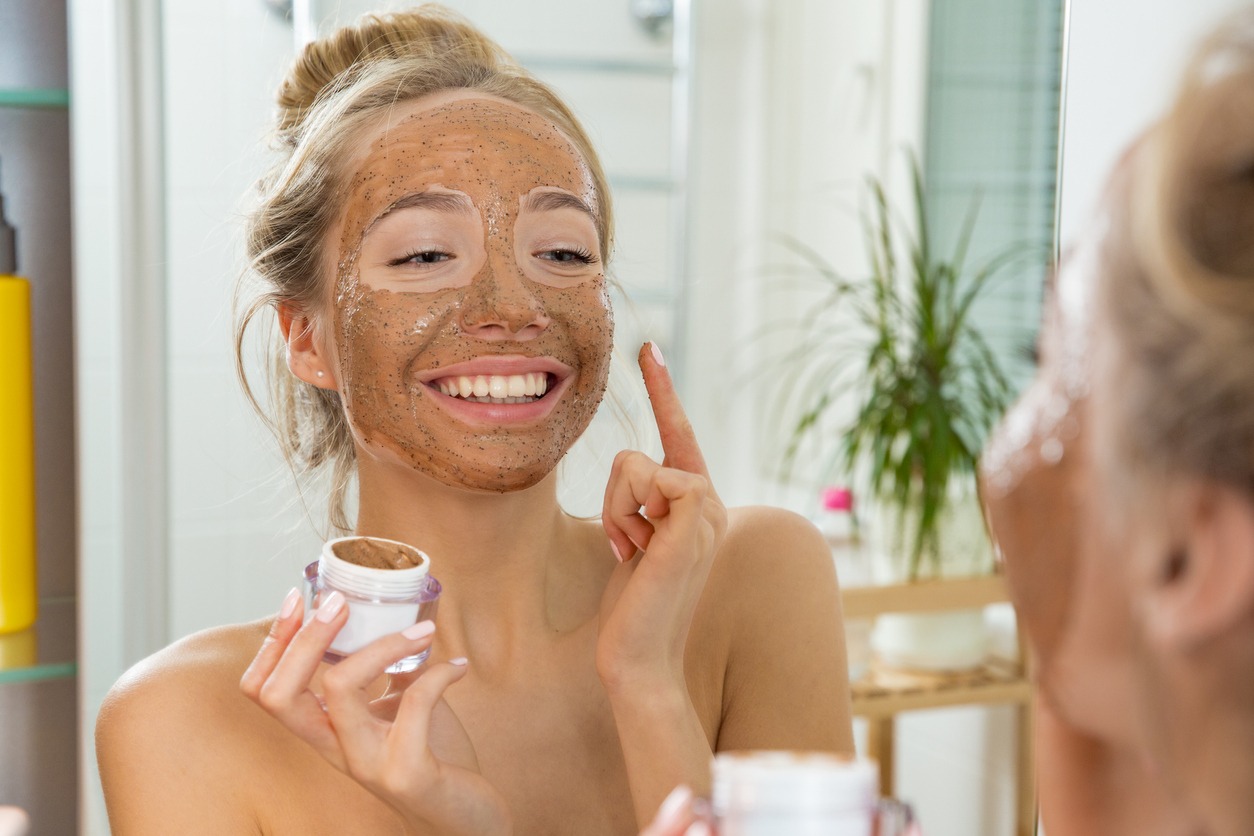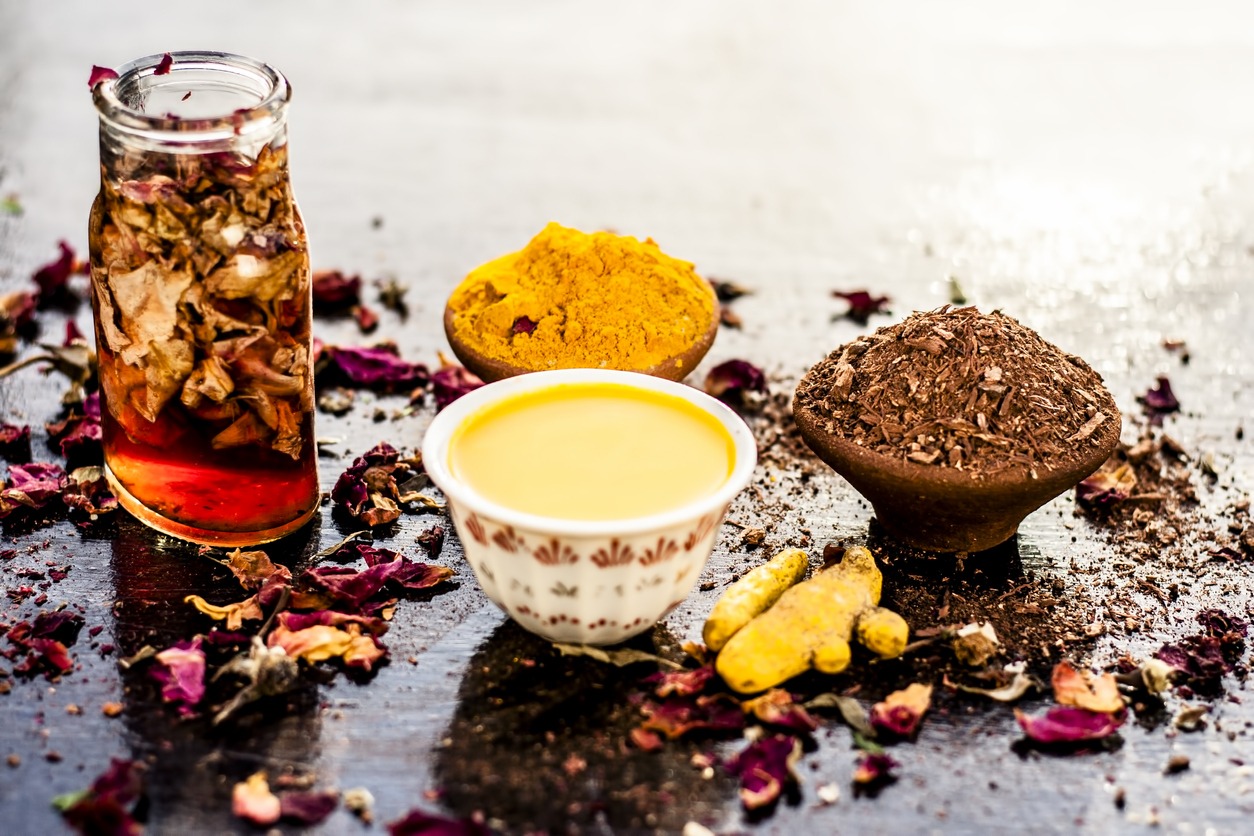Sandalwood is an aromatic evergreen tree of the genus Santalum with heavy, yellow, and fine-grained wood that has been used in perfumes, scents, and colognes since ancient times. Sandalwood oil and powder are widely utilized for their remarkable aesthetic and health benefits. It is the second most expensive wood in the world, behind African Blackwood, and its distinctive aroma was coveted in ancient remedies for its numerous healing benefits.
Most people recall their grandmothers advising them to cover themselves in yellow sandalwood paste during the hottest part of the summer to calm their skin and even out their complexion. Numerous at-home skincare recipes incorporate sandalwood, which is renowned for both its woody, strong aroma and its long-revered healing properties.
Utilized as a powder, paste, or oil, sandalwood is a potent antibacterial, emollient, and anti-inflammatory agent that has a variety of beneficial effects on the skin.
What is powdered sandalwood?
Sandalwood powder is produced from sandalwood tree. Consistently using sandalwood powder combats acne-causing germs, exfoliates the skin, relieves sunburn, eliminates tan, and lowers indications of aging such as dry skin and wrinkles. Additionally, the scent of sandalwood instantly improves your mood.
If you have difficulty combating acne, pimples, or dry skin, we recommend using sandalwood powder instead of commercial cosmetic products. It has several health and beauty benefits, including the ability to treat rashes, pimples, acne, and other skin conditions. The benefits of sandalwood for the skin are numerous and diverse.
There are numerous uses for sandalwood powder on the face. In addition to promoting clear skin, sandalwood aids in the elimination of persistent skin-related disorders.
How is sandalwood powder utilized?
Sandalwood can be utilized in numerous forms, including sandalwood oil and powder. Although sandalwood oil can be applied without much difficulty, sandalwood powder is readily accessible on the market. One can utilize sandalwood powder in a variety of ways to gain the benefits of sandalwood.
Face Pack
This is widespread knowledge regarding the effects of sandalwood powder face pack on skin care. Simply combine 1 teaspoon of sandalwood powder with a few drops of rose water to produce a paste. Apply the mixture to the face and allow it to dry completely before rinsing it off with water from the faucet.
Pomade
If you have sunburns, apply a mixture of sandalwood powder and coconut oil to the affected region.
Benefits of Sandalwood Powder
1. Lighter complexion pack
Sandalwood powder enhances the attractiveness and radiance of skin for all skin types. Mix one teaspoon of sandalwood powder with one teaspoon of besan flour, turmeric powder, and rose water to form a fine paste. Apply the paste to the skin, let it sit for fifteen to twenty minutes, and then rinse. Regular application of this face mask improves the skin’s texture, radiance, and complexion.
2. Effective anti-inflammatory properties
The powder and oil of sandalwood are potent anti-inflammatory agents. The anti-inflammatory properties of sandalwood oil relieve inflammation of the digestive tract, muscles, brain, excretory system, and circulatory system. The essential oil inhibits the release of several chemokines and cytokines that promote inflammation.
3. Preserve the natural aroma and essence of soaps
Sandalwood powder and oil aid in maintaining the smell and character of soaps in their entirety. The calming essential oil has moisturizing, anti-aging, and hydrating properties. It has also demonstrated amazing cleansing and toning capabilities, making it a suitable ingredient for the majority of cosmetics, soaps, and creams.
4. Anti-ageing
Antioxidants present in sandalwood reduce skin sagging and the subsequent production of wrinkles. It is also capable of protecting the skin from damage caused by free radicals. It is revered in Ayurveda for its anti-aging effects, which can make skin firmer and reverse sun damage. Isn’t that incredible?
5. Combats acne
You can even use sandalwood to avoid the appearance of these dreadful zits on your skin. Sandalwood’s antiseptic properties inhibit bacterial growth on the skin, allowing it to effectively cure acne, boils, and ulcers and prevent their progression.
6. Eliminates scarring
It is known that sandalwood can repair skin tissues. This property aids in the removal of wound scars, blemishes, dark spots, and eczema. You may also use sandalwood powder to whiten your skin because it eliminates impurities to give you an even complexion. On their wedding day, brides-to-be are urged to apply sandalwood to their faces in order to seem immaculate.
7. Calms the skin
Its anti-inflammatory characteristics make sandalwood a good treatment for sunburns and skin rashes. It also prevents outbreaks and acne.
8. Anti-tanning
If not handled immediately, the effects of a tan might linger for a considerable amount of time. Applying sandalwood oil or paste to affected areas can gradually eliminate suntan and lessen the redness and burning produced by overexposure to the sun’s rays.
9. Exfoliates to remove dead skin cells
Pollutants and dust clog pores, leading to acne and other skin problems. Sandalwood powder can be used in scrubs to exfoliate dead skin cells, resulting in improved and suppler skin.
10. Reduces skin redness
Sandalwood is also recognized for its calming and anti-inflammatory characteristics, which aid in reducing skin redness, particularly if you have sensitive skin that becomes irritated by even the smallest allergen.
How to incorporate sandalwood into your skincare regimen?
Face masks using sandalwood oil or paste can be utilized for a variety of issues. For dry skin, make a mask by combining sandalwood paste and honey. Mix sandalwood paste with cucumber, lemon, and yogurt, and apply liberally if you have a severe tan. The gentle exfoliating properties assist in removing the tan as well as any dark spots or scars. For oily, acne-prone skin, combine sandalwood paste, turmeric, and rose water to make a mask that dries to a rigid state. Both turmeric and sandalwood have anti-inflammatory qualities that reduce redness and inflammation on the skin.
While sandalwood is suitable for all skin types, it might irritate extremely sensitive skin. Before applying to inflamed regions, be sure to conduct a patch test to rule out an allergic reaction. Even though sandalwood oil is a moderate substance, it must be blended with a carrier oil and diluted before to use. Rosehip oil, almond oil, or evening primrose oil are ideal for this purpose. It is crucial to note that the majority of dermatologists do not recommend blending sandalwood oil with another aromatherapy-based oil, such as lavender or bergamot, because doing so can cause discomfort.
To summarize
As a timeless substance found in ancient beauty rituals from every empire in history, sandalwood has found a place as a component in modern cosmetics for all skin types. Sandalwood is effective in combating the intrinsic and extrinsic indicators of premature aging, allowing our skin to adapt to our age regardless. Therefore, it is only natural that sandalwood has made its way into the period of timeless beauty products, given all of its fundamental benefits.




